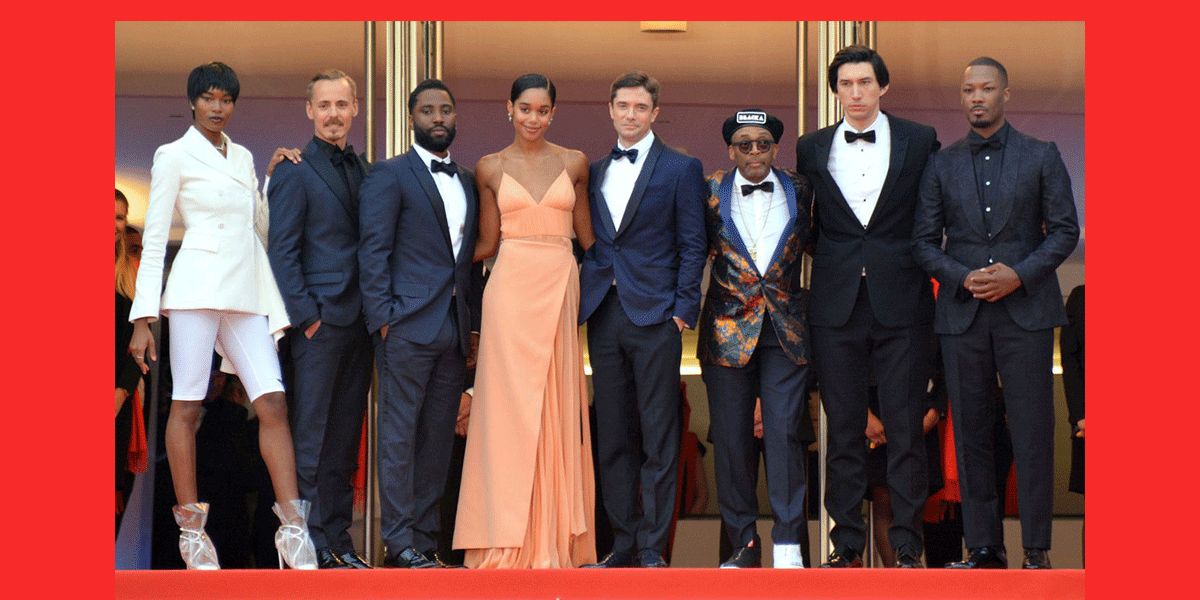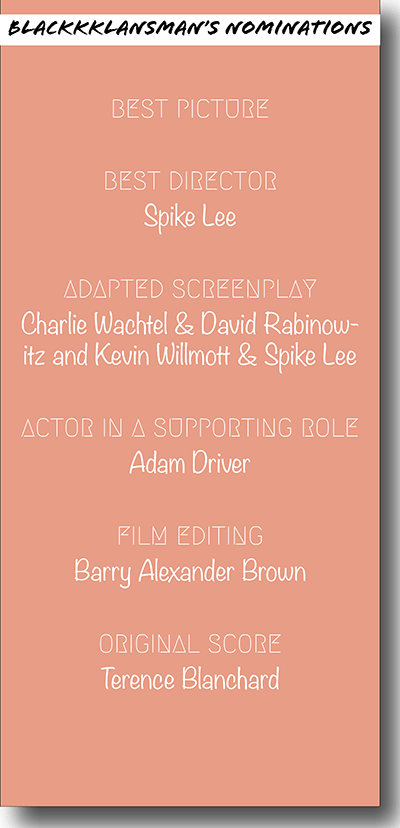“BlacKkKlansman,” Spike Lee’s absolute masterpiece of a movie, was incredibly timely when it was first released in 2018 and actually could be even more relevant now, two full years later. Dealing head on with racism and discrimination, the brilliantly written film offers commentary and insight on contemporary racial issues.
 The cast of “BlacKkKlansman” and director Spike Lee premiered their movie at the 2018 Cannes Film Festival. Photo courtesy of Georges Biard
The cast of “BlacKkKlansman” and director Spike Lee premiered their movie at the 2018 Cannes Film Festival. Photo courtesy of Georges Biard
__________________________________________________
This incredible “based on a true story” flick is loaded with a star-studded cast, including headliners John David Washington, Adam Driver and Laura Harrier, who beautifully re-enact each and every one of the unique scenarios presented in this movie. John David Washington plays Ron Stallworth, an African-American police officer in Colorado Springs, Colorado, who, with the help of Adam Driver’s Jewish police officer persona, Flip Zimmerman, roots himself in a nearby Ku Klux Klan branch all for the sake of a police investigation … and then some. Despite this film being set in the late 1970s, there are (unfortunately) plenty of reasons why this beautifully made, yet emotionally jarring picture is still relevant in today’s world. There are many graphic but necessary scenes in “BlacKkKlansman” that accurately depict the horrors of racism, from the brutal language shared among the KKK members, to the discrimination and abuse from Stallworth’s and Zimmerman’s fellow police officers, which are instances that still hit way too close to home for minorities in this day in age. However, something that Spike Lee did well when directing this film was sprinkle in tasteful bits of humor and wit that offer the audience a good chuckle, but in a more dark, “this is actually how people were and still are” kind of way. The writing of this script was phenomenal, for it maintains the perfect balance of all the necessary elements in the textbook storytelling process while also pushing limits and expanding on certain topics in ways that directors might not normally want to go. I loved Lee’s vision on this entire piece, because not only was the writing excellent, but the visuals and just the overall way this movie was shot were intensely gorgeous. The wardrobe choices were divine, appearing to ring extremely true to the African-American culture at the time, and the setting perfectly encapsulated the entire vibe of Colorado Springs (I can say confidently having traveled there myself in 2018). Perhaps the most impactful part of this Oscar-winning picture was actually the ending credits of the movie, which featured various video clips from current day race-related riots, specifically from Charlottesville, Virginia, during 2017. It was actually sickening to watch, just like it was back when all the horrific video footage originally surfaced, but just like the rest of the movie, it was an incredibly powerful choice and really inspired me to fight for a REAL, true change in this country. As much as some Americans are still in denial and want to think that we are leaps and bounds away from the absolute horrors of racial injustice that our country was pretty much built upon, we are absolutely not even close to that or where we need to be at all in terms of equal opportunity and treatment for all. And, because of that, the college sophomore me from 2018 as well as the college senior me today is absolutely begging you to give this movie a shot. When I try to rack my brain for the countless movies, shows and videos I’ve seen in this digital age that I, and so many others, call life, one that I absolutely cannot shake is the major motion picture directed by Spike Lee, “BlacKkKlansman.”
When I try to rack my brain for the countless movies, shows and videos I’ve seen in this digital age that I, and so many others, call life, one that I absolutely cannot shake is the major motion picture directed by Spike Lee, “BlacKkKlansman.”